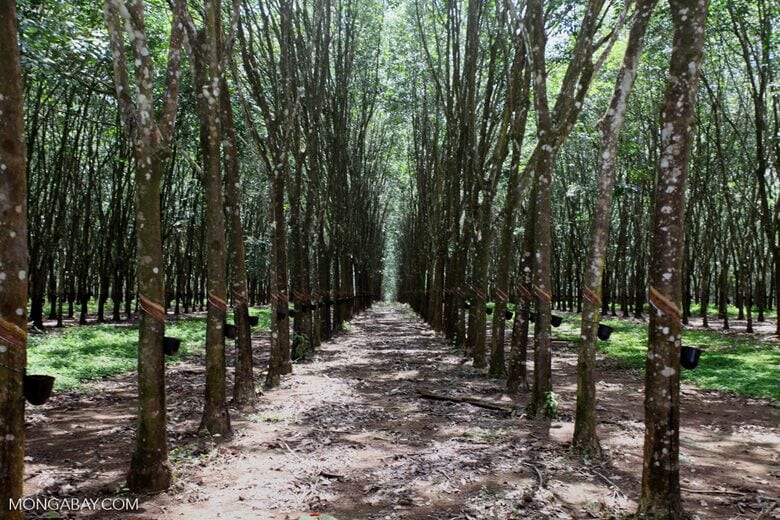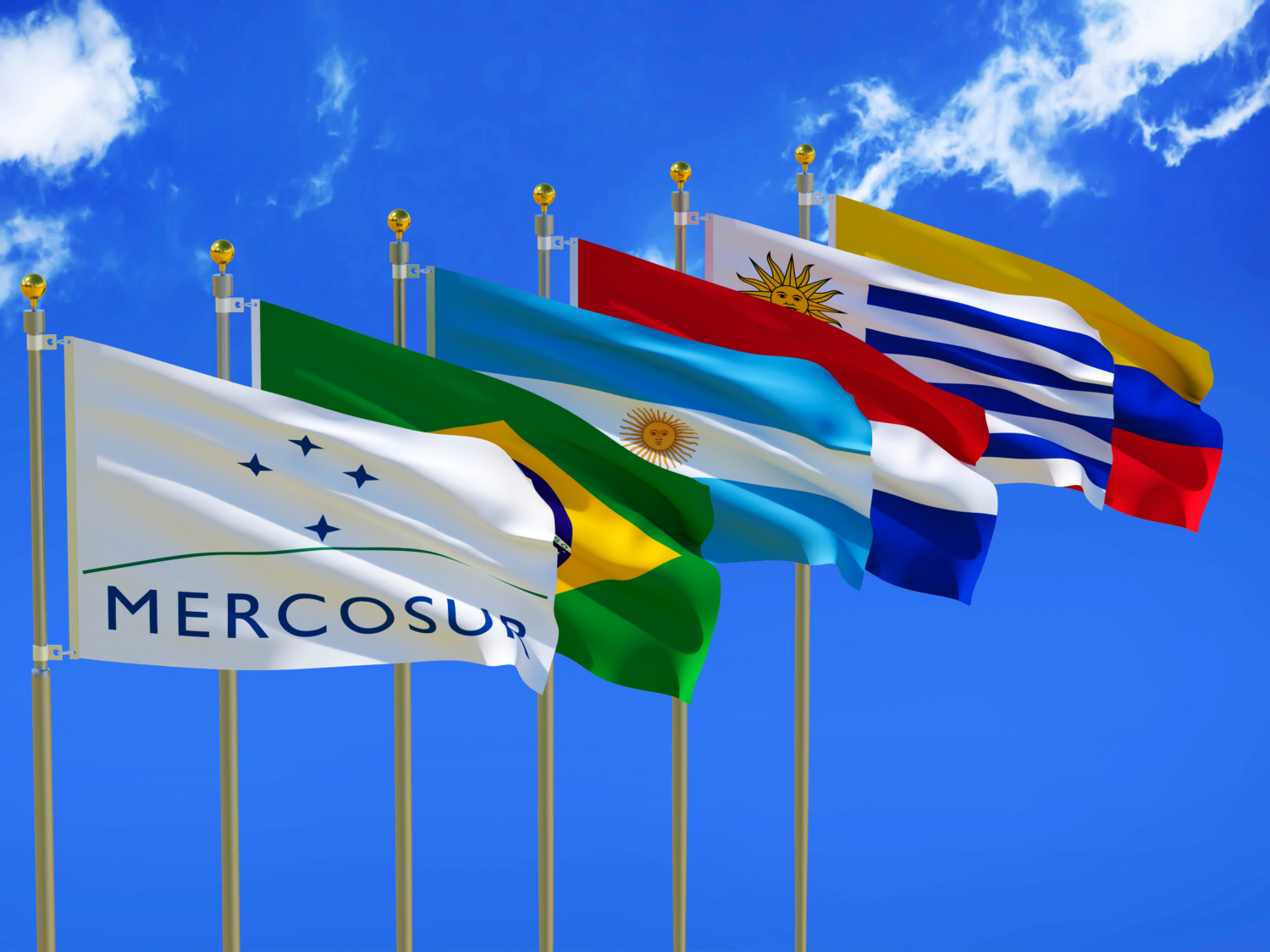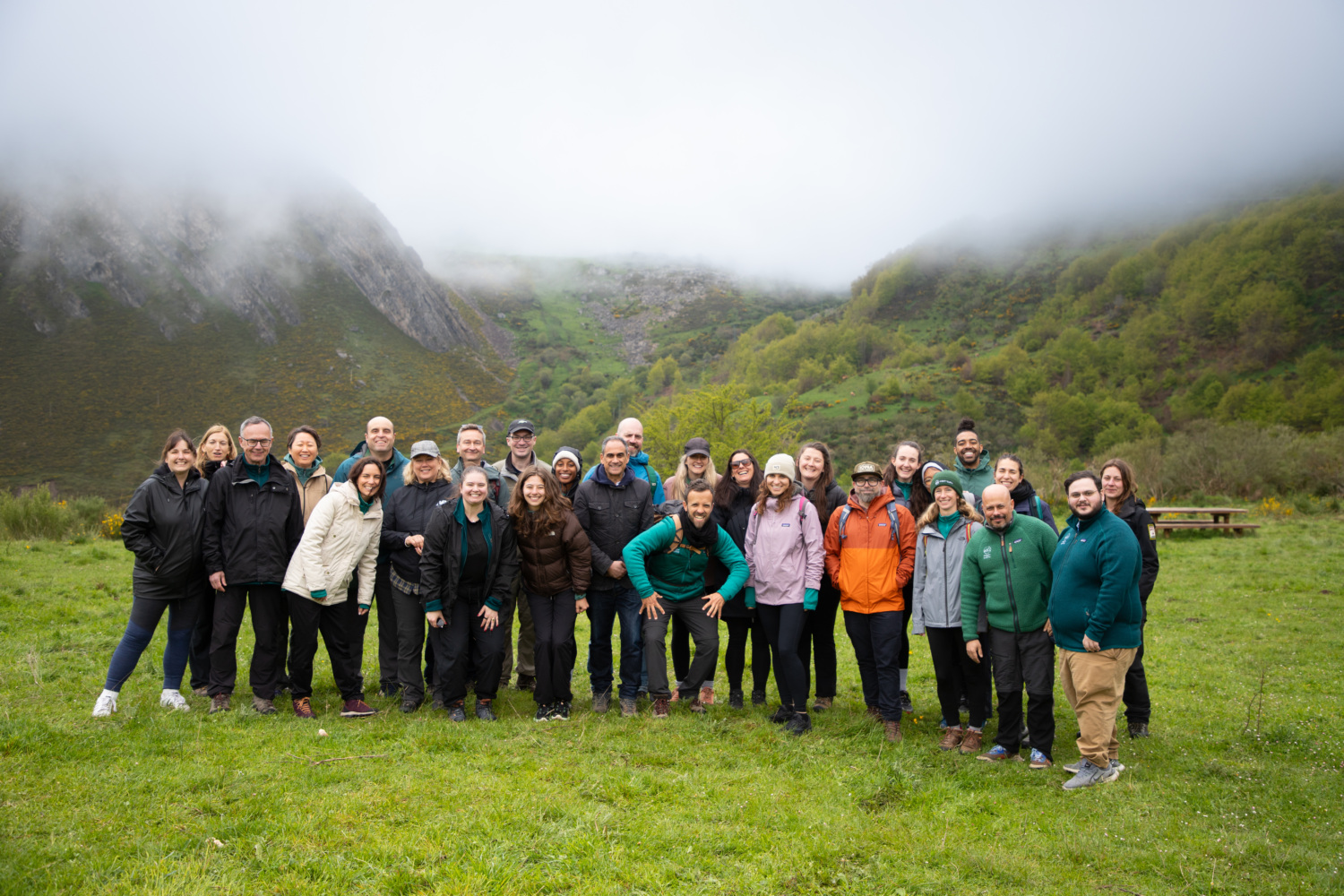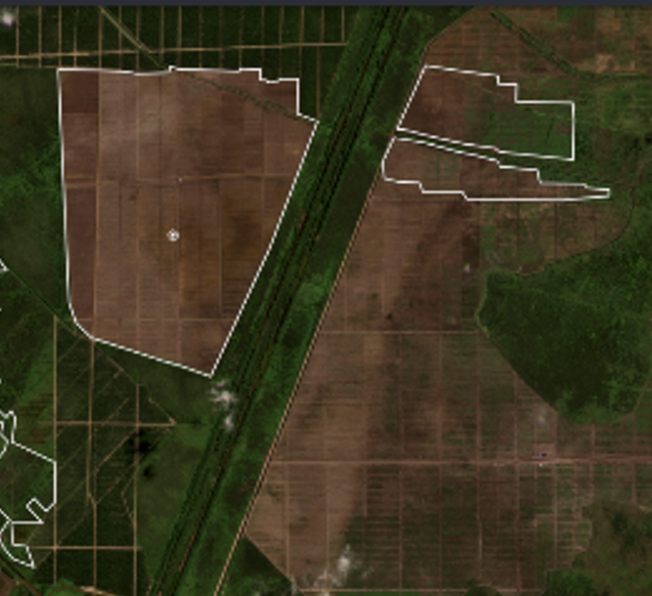
Victory: Mighty Earth celebrates European Parliament’s vote to include rubber in legislation aimed at ending deforestation in EU supply chains
Mighty Earth’s Dr Julian Oram looks back at the campaign waged by civil society groups to ensure natural rubber was included within the scope of the proposed new EU deforestation law. And crucially, the evidence that Mighty Earth presented to persuade MEPs to make the right decision to include natural rubber as a forest-risk commodity alongside soy and meat.
Forest campaigners are celebrating an important win in the European Parliament, which this week voted overwhelmingly to strengthen proposed legislation preventing goods linked to deforestation from being sold in the European Union. Sustained and effective lobbying by Mighty Earth and others means natural rubber is now on that list.
The draft law, initially put forward by the European Commission, will require companies to undertake due diligence checks to ensure products they sell in the EU have not been derived from agricultural commodities grown on cleared forest land. Agricultural expansion drives almost 90 per cent of global deforestation, and the EU is the second biggest importer of agricultural goods which drive that deforestation, behind only China.
A flawed gem
Whilst Mighty Earth welcomed the draft regulation as a “major leap forward” in Europe’s efforts to protect forests, the Commission’s proposals had notable gaps and weaknesses. Amongst these were an overly narrow definition of “forests;” the failure to require parallel due diligence measures with regards to the protection of human rights and Indigenous Peoples’ rights; and a strikingly unambitious level of coverage with regards to the types of products that will be covered under the law.
Under the Commission’s proposals, the scope of goods subject to due diligence checks would be limited to six commodities: cattle, coffee, cocoa, palm oil, soy, and wood products. While these products account for the bulk of global deforestation, limiting the scope of the legislation to those six commodities would leave the EU’s door open to significant amounts of imported deforestation from other goods.
Most notable was the omission of natural rubber. The expansion of natural rubber plantations has had an enormous impact on tropical forests over the past 20 years, particularly in Southeast Asia and West Africa. Between 2003 and 2017, over five million hectares of tropical forest were cleared across Southeast Asia and sub-Saharan Africa for rubber plantations. Approximately 70% of natural rubber is consumed by the tire industry.
The EU is a key factor in global rubber markets, consuming an estimated 1.02 million tonnes of natural rubber for vehicle tires and non-tire use in 2020. Over 318 million auto tires were produced in European plants last year, and three of the six largest global tyre and rubber corporations – Michelin, Continental and Pirelli – are based in the EU. The bloc therefore has a key role to play in preventing rubber-driven deforestation.
Evidence falling on deaf ears
When drawing up its “hit list” of commodities, the Commission relied heavily upon an impact assessment that presented a cost/ benefit analysis of introducing due diligence checks on different commodities. This paper concluded that the deforestation footprint of natural rubber (and maize) was not worth the potential impact on the value of imports to Europe, as it would “…require a very large effort, with little return in terms of curbing deforestation driven by EU consumption.”
But an international conservation scientist, Dr Eleanor Warren-Thomas, spotted a fatal flaw in the Commission’s analysis: the authors had only considered natural rubber entering the EU in raw or semi-processed form, and had neglected to consider imports embedded within tires, the primary use of natural rubber. Dr Warren-Thomas realised that the EC cost-benefit analysis study had misinterpreted data from an academic study published in 2020 by Florence Pendrill et. al.Mighty Earth quickly contacted the authors of that study to alert them to the Commission’s misreading of their work. In late October 2021, the academics published a strong critique of the EU’s impact assessment, concluding that “Current evidence does not support recommendations to exempt key forest risk-commodities, such as maize or natural rubber, from EU legislation on imported deforestation”.
In fact, when recalculated to account for rubber embedded in tire imports, the academics showed that the cost-benefit rationale of including natural rubber is comparable to that of cocoa, and stronger in comparison to coffee.
Mighty Earth met with Commission officials from DG Environment to present this evidence, but at this point their mind had already made been made up: rubber was to be excluded from the initial scope of the regulation.
The battleground changes
Following publication of the draft law by the Commission, the battleground shifted to the European Parliament and Council of Europe. In early spring, Mighty Earth reached out to prominent members of the Parliament’s Environment Committee to present evidence that the Commission grossly underestimated the amount of potential deforestation embedded within natural rubber imports to the European Union. This was followed up by trips to Brussels to meet both with Parliamentarians, as well as with officials responsible for the deforestation regulation within the Council of Europe.
Traditionally, the Council, which is made is made up of Member State representatives, adopts a conservative approach to regulatory proposals; i.e., it is rarely the Council that will push for “progressive” changes to proposed laws. This proved to be the case again with the deforestation regulation proposal, which the Council did nothing to improve upon. This meant that any hope of strengthening the legislation rested with the Parliament.
Behind the scenes, a large coalition of civil society groups were pushing members of the Council, MEPs, and business leaders to back stronger measures. These organisations were crucial in winning support within the Environment Committee for provisions to include human rights due diligence, expand the definition of forests, extend responsibilities to the financial sector, and setting a more ambitious cut-off date in place (the point in time after which no goods can be sourced from land that has been deforested).
But with so many issues at stake, there was a danger that the need to expand the scope of commodities to include natural rubber (as well as other key agricultural goods such as leather and maize) would be lost in the melee. Mighty Earth therefore focused heavily on ensuring that MEPs were presented with evidence on natural rubber and saw the benefit of our efforts when members of the Environment Committee added an amendment that would ensure rubber is brought within the scope of the regulation. Over the summer and into September, Mighty Earth continued to pressure MEPs and national Parliamentarians in Spain and elsewhere to ensure that the support for rubber’s inclusion remained strong.
The proposed amendment was carried over into this week’s vote in plenary, representing an important victory for forests, and indeed for common sense!
A shot across the bows of the global rubber industry
The significance of this development should not be underestimated. Compared to companies dealing in products such as soy, cocoa and palm oil, the tire industry has lagged well behind the curve in efforts to develop systems for tracing the origins natural rubber and ensuring deforestation-free supply chains. Should the final regulation include natural rubber, companies wishing to import tires into the EU will need to be able to demonstrate that their products are not tainted by deforestation, land grabbing, or human rights abuses.
This will complement and accelerate existing efforts by initiatives such as the Global Platform for Sustainable Natural Rubber, which are slowly attempting to put the industry on a more sustainable path.
What next?
The plenary on September 13 vote sets the European Parliament’s position on the draft law position in the forthcoming “Trialogue,” the tripartite negotiations between the European Commission, Council and Parliament. This process will take place during the autumn, leading to a final version of the EU’s Regulation on deforestation-free products, likely by the end of 2022.
Mighty Earth will continue to push negotiators from all three EU institutions to for an ambitious and effective law, one that includes natural rubber, and helps to transform a laggard industry into a world leader on sustainability.


